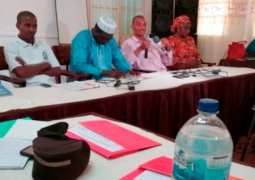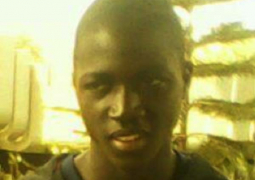In our bid to make the voices of vulnerable young people heard by bringing them to the public domain, on Monday, I walked along the streets of Serrekunda and Tabokoto to meeting the youth in the ghettos.
Almost every street I passed, I saw youth sitting in groups. Even though most of them were open and welcoming me for interview they did not want to be quoted (except few), talk less of taking photos of them.
But they were bold enough to discuss their problems with me and hoping that my publication might help alleviate their suffering.
For most of them, they do not have a work to do, which is why they decided to stay in the ghettos to drink ataya (China green tea), while some say they have learned driving but they do not have a car to drive.
Asked why they did not learn marketable skills to be employable and/or even become self-employed, they said: “We don’t have anyone to support us to learn skills because even if the course is free, for instance, we need someone to help us to be going and coming which we can’t afford.”
At Tabokoto, one Gelajo Sowe, a 17-year-old from the village of Bodaye in the Central River Region of The Gambia, spent 9 years in Madarasa school in the provinces before moving to the capital in search of job.
“I still want to go to school to learn how to read and write in English so that I can have a job,” he said.According to him, he went to the Madarasa to learn Quran and Sharia (Islamic Law) but the knowledge he gained from it could not get him any job.
“My main problem today is to get a sponsor either from the government or NGOs to help me go back to school since I cannot continue depending on others to feed me,” he remarked.
The young man said he would also appreciate it if he could get the chance to learn a skill such as mechanic or tailoring.
“This kind of skills would help me even to get a job quickly, and I even see some young people learning such skills but most of the time they do not complete because you need someone to support you for your upkeep since you would not be earning a salary,” he remarked.
Ousman Sowe, a 19-year-old boy of Abuko, said that when he was going to school he could not see the writings on the board and as a result he dropped out of school.
“My purpose of dropping out of school was as a result of my partial blindness; I could not see the writings on the blackboard,” he said.
According to him, he had the dream to become a medical doctor but by the time he reached grade 9, he was forced to leave school since he could not see the writings on the board.
He added: “Now that I have recovered my sight I would like to go back to school but my family is very poor and could not afford to pay for my high school education,” he lamented.
“I stand by the road side now to do some apprenticeship for drivers and some time I do go home with five to ten dalasis or even more, or some times nothing at all,” he explained.
He added: “So my partial blindness has enormously contributed to my failure of not achieving my dream in life so far.”
He therefore calls on the government to create more job opportunities for young people like him, “even if they are not well educated”.
A man who preferred to remain anonymous also told me he had just paid for three of his brothers to travel abroad to seek jobs because since they graduated from High School they had been sitting at home without job.
One of his brothers, he said, is a trained carpenter but does not have customers and wanted to move to the neighbouring countries to see if the business would work.
He however said that to their big surprise the boys were intercepted last Wednesday at the Kerr Ayub boarder post with neighbouring Senegal.
“We have paid D3, 900 equivalent to CFA 60,000 for them to go to Niamey, Niger, in search of job and now they are intercepted we need our monies back,” he complained.
Please follow us in our future editions when we hope to bring you the voices of more vulnerable young people in this country and reaction of authorities.



